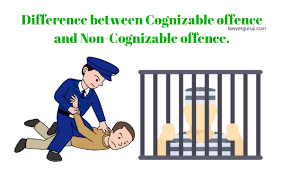Do you know Bail Able & Non-Bail Able Offence? Bail is granted as a matter of right in bailable offences; however, once arrested for a general non-bailable offence, the accused must bring his or her case within the scope of the colonial language in section 497(2) of the Code of Criminal Procedure (CrPC) 1898 in order to regain his or her liberty.
Under PPC some offences are bailable and some are of serious nature and are non-bailable. Although a police officer may be able to arrest a suspect in some situations without a warrant, other times they may need a magistrate’s arrest order. The resolution of certain disputes can be reached with mutual consent between the parties, but sometimes this is impossible. District and Session Court has the power to grant pre-arrest bail on some specific grounds.
Who Am I? I’m Ijaz Ahmad Sandhu (Author of ValidLaws) working as an advocate in the Punjab High Court, the main goal is to write this article to enhance the knowledge of laws scholars/students related quarries and aware the legal rights.
After reading this article, you will be aware of; What is Bail Able & Non-Bail Able Offence related to the Criminal Procedure Rule which is compoundable and cognizable non-cognizable. Additionally, you will be aware of which offences are subject to bail and which are not.
Classification of offences:
Offenses are divided into many categories based on their nature and severity.
- Bailable and non-bailable
- Compoundable and non-compoundable
- Cognizable and non-cognizable
What are bailable offences:
An offence that is listed as being bailable in the First Schedule or that is rendered bailable by any other currently in effect law is considered a bailable offence.
When anyone other than a person accused of a non-bailable offence is arrested or detained without a warrant by a police officer in charge of a police station or appears or is brought before a court and is prepared at any time while in the custody of that officer or at any time during the proceedings before that court to give bail, that person shall be released on bail.
Which cases are bailable:
- Cases which are bailable are e.g.;
- Giving false evidence
- Threatening any person to give false evidence
- Attempt to commit suicide
- Punishment for Cheating
- Forger
- Marrying again during the lifetime of husband or wife
- Punishment for Defamation
Non-bailable offences:
Non-bailable cases are such cases in which Bail may only be issued instances at the court’s exclusive discretion.
Section 497 of the Code of Criminal Procedure (CRPC) for non-bailable offences states that if there are “reasonable grounds for thinking” that an accused is “guilty of a crime punished with death, imprisonment for life, or imprisonment for 10 years,” that person will not be granted bail.
What are non-bailable offences:
Examples of non bailable offences are;
- Adulteration of drug
- Punishment for murder
- Punishment for Culpable homicide not amounting to murder
- Dowry death Attempt to murder
- Punishment for Rape
- Punishment for robbery, theft or Extortion

Table of difference in Bailable offence and Non-bailable offence;
| Bailable offence | Non-Bailable offence |
| It is defined in by u/s 2 (a) of Criminal Procedure Code as an offence coming in 1st schedule | It is also defined in by u/s 2 (a) of Criminal Procedure Code as offence other than bailable |
| Its provisions can be traced under Section 436 of Criminal Procedure Code | Its provisions can be traced under Section 437 of Criminal Procedure Code |
| Punishment generally up to three years but exception in some cases | Punishment generally ten years or life imprisonment |
| Bailable offence are Less serious in nature | Non-Bailable offence RE serious in nature |
| Bail is can be granted by police officer as matter of right | Bail is not matter of right and doesn’t granted without consent of court in specific circumstances |
| Examples are cheating, abusing, Defamation, Forgery etc. | Examples are Rape, murder, Adulteration of drug etc. |
Cognizable and non-cognizable offences:
According to Criminal Procedure Code Cognizable offence that type of offence in which a police officer, may, in accordance with the second schedule or under any law for the time being in force, arrest a person without warrant.
The Criminal Procedure Code Section 150 states that When a police officer receive information of a plan to commit a crime, he or she must alert the police officer to whom he or she reports as well as any other officers tasked with stopping the crime or reporting
the committing of such an offence.
According to Section 151 of Criminal Procedure Code If it appears to the police officer that there is no other way to stop the conduct of the crime, he or she may arrest the person who is planning to commit the cognizable offence without a warrant or an order from a magistrate.
According to Section 154 Criminal Procedure Code Every piece of information pertaining to the conduct of a crime When delivered verbally to a police officer in charge of a station, the information must be put to paper by him or under his supervision and read the informant and informant will sign after reading and the content must be written down and should be recorded in a book maintained by the officer in whichever format the provincial government sees fit.

Example of cognizable offences:
- Rape case
- Murder
- Robbery etc.
Non-cognizable cases:
Non cognizable offences are such type of offences in which police can’t arrest a person without arrest warrant.
According to Section 155 of Criminal Procedure Code When an officer in charge of a police station receives information about a non-cognizable offence occurring within the station’s boundaries, he or she must record the details of the information in a book to be preserved as described above and direct the informant to the Magistrate.
Without a first- or second-class magistrate’s order and the authority to trial the case, no police officer shall investigate a non-cognizable case.

Example of non-cognizable offences:
- Cheating
- Defamation
- Abusing each other
- Assault etc.
Table of difference in Cognizable offence and Non-cognizable offence;
| Cognizable offence | Non-cognizable offence |
| police officer can arrest without arrest warrant. | Police officer can’t arrest without a warrant. |
| Section 150,154 Criminal Procedure Code | Section 155 Criminal Procedure Code |
| Police can investigate without the permission of court. | Police can’t investigate without permission of court. |
| Police officer will register FIR. | The police officer can’t register FIR without permission of magistrate. |
| Serious offences like Robbery, Rape, Murder etc. | Minor offences like Defamation, Assault, Forgery etc. |
| It is not bail able. | It is bail able. |
What are Compoundable and non-compoundable offences?
Compoundable cases are those cases I which parties can mutual compromise and in non-compoundable cases, parties can’t compromise due to the nature of the case.

Compoundable offence:
Cases in which parties are able to reach a compromise are known as compoundable offences. Because compoundable offences are less serious than other types of crimes, two parties should agree to a settlement. Some examples of compoundable cases are;
- Trespass
- Breach of contract
- Defamatory statement
- Hurt some religious feeling
Compoundable offences are of two types as these offences may be compounded either with or without the court’s approval.
Compoundable without consent of court:
According to the list of offences provided by Section 320 of the Criminal Procedure Code, these offences may be compounded without the court’s permission;
- Defamation
- Abuse someone or Cause hurt
- Criminal trespass
- Adultery etc.
Compoundable without consent of court:
According to the list of offences provided by Section 320 of the Criminal Procedure Code, these offences only be compounded with consent of court;
- Assault
- intentionally causing serious harm,
- among other things, dishonest property theft
- assault on a female target with the goal to insult her modesty etc
Non-compoundable offences:
Non-compoundable offences are those for which there is no possibility of a mutual agreement between the parties. These offences are not compoundable because of the nature and seriousness of the offence. All those offences which are not mentioned in the list of section 320 are non-compoundable
In non-compoundable cases, the police or the state is typically the parties.
By non-compoundable offences, private party, as well as society or community, is disturbed. So in these offences, no compromise is allowed between parties and the court does not have the power or right to compound these cases. After a full trial case is decided by acquittal or conviction by the court.
Some examples of non-compoundable cases are;
- intentionally committing harm using unsafe tools or methods
- causing severe harm by acting in a way that puts another person’s life or personal safety in danger.
- unlawful detention of a person for three or more days.
- fraud that is criminal and involves property
- False declaration of compensation in a fraudulently executed transfer deed etc.
Which section deals with compoundable and non-compoundable cases in Pakistan?
Section deals with compoundable and non-compoundable cases are Section 345 Criminal Procedure Code because sections 266 to 336 are omitted by Law Ordinance X11 of 1972.
Table of difference in compoundable and non-compoundable offences;
| Compoundable offence | Non-compoundable offence |
| Charges brought against the accused in a compoundable offence may be withdrawn. | Charges brought against the accused in a compoundable offence can’t withdraw. |
| It only affects a private person | It affects the whole society |
| Party will be a private person | Party will be state or police |
| The settlement will be with the consent of the court or without consent of the court | No settlement either with the consent of the court or party lead to acquittal or conviction |
| Section 320 of the Criminal Procedure Code mentions a list of compoundable cases | These Crimes are that which had not to mention in Section 320 of the Criminal Procedure Code |
| Full trials are not continuing either end with the compromise of parties at any stage | Full trials are held and end with acquittal or conviction |
Conclusion:
Through this discussion, we come to know that there are many types of offences and they are different in nature punishment is also different. Some offences are bailable and some do not bailable. In some offences police officer has the power to arrest a person without a warrant. We briefly describe the differences in all of these offences. Thank you keep searching for valid laws.






